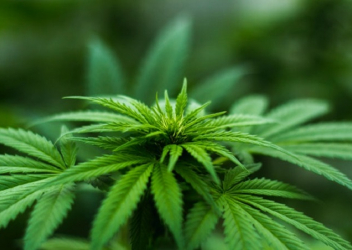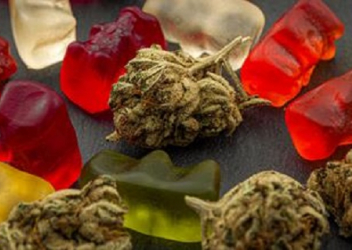Research In Action
Research In Action
Breadcrumb

In a post published in March 2022, the CHOP Poison Control Center highlighted the increasing number of child injuries from cannabis-derived products. Intoxication from tetrahydrocannabinol (THC)—the chemical responsible for marijuana’s psychoactive effects—can lead to serious clinical effects in children, especially as the potency of THC-containing products continues to increase.
Shortly after our post, New Jersey enacted legislation that legalized the recreational use of marijuana. Other states that legalized marijuana have seen subsequent increases in child injury, and clinicians should be prepared for this possibility in our region. In response, we published a brief* in NJ Pediatrics to help local clinicians update their knowledge of marijuana and find ways to advocate for their patients’ safety. We highlight some key aspects of our review below.
Acute Intoxication
In our review, we reiterated the potential adverse effects of acute intoxication, especially in young children. Agitation, seizures, and coma have all been documented in young children who become “high” from THC-containing products. A small but significant subset of these children are hospitalized in an intensive care unit, and some are supported with mechanical ventilation. Older children and adolescents may present to clinicians with concerns for palpitations (fast heart rate), paranoia, or drug-induced psychosis.
Long-Term Consequences
Pediatricians may wonder about the consequences of long-term THC use, especially in their adolescent patients. In adolescents, cannabinoid hyperemesis syndrome, which is characterized by repeated vomiting from long-term marijuana use, can lead to emergency department visits and hospitalization.
Research continues to help individuals and clinicians better understand other neuropsychological and physical effects of prolonged use. It is important to note that most available published studies describe associations. Clear causal links between THC use and specific findings have not yet been established. So far, studies have described:
- an association between marijuana use and an increased likelihood of using other psychoactive substances, such as heroin or cocaine
- an association between chronic/heavy marijuana use and suicidal ideation or suicide attempts.
- the development of acute, subacute, and chronic psychosis, as well as schizophrenia in later adulthood, with prolonged marijuana use
Policy and Prevention
As marijuana remains illegal at the federal level, state-driven policy has led to a patchwork of regulation and enforcement. For example, the state of NJ sets the limit for edible THC-products at 10 mg per serving and 100 mg per package. However, unit dose packaging is not standardized, and a child could ingest “10 servings” from a package unknowingly. Practitioners should continue to advocate for:
- improved, standardized THC product packaging that conforms to the Poison Prevention Packaging Act
- prohibiting products that resemble consumable child products (e.g., candy). Until policy efforts improve the safety of THC-containing products, marijuana safety remains primarily the responsibility of child caregivers. Several important safety tips for families include:
- avoid bringing edible THC products into homes
- treat THC products like medications—store them out of reach, out of sight, and preferably locked
- openly discuss with families and friends about maintaining a safe home environment
- be aware that supervision of children may be impaired by THC intoxication
If you suspect that a child has been exposed to THC, please call the Poison Help Hotline at 1-800-222-1222 to be connected to a specialist. If the child is having trouble breathing, or is having a seizure, call 911.
*Gaw GE, Osterhoudt KC. Legalization of Marijuana in New Jersey: Implications for Pediatric Injury Prevention. New Jersey Pediatrics. 2022;49(2):25-9.




